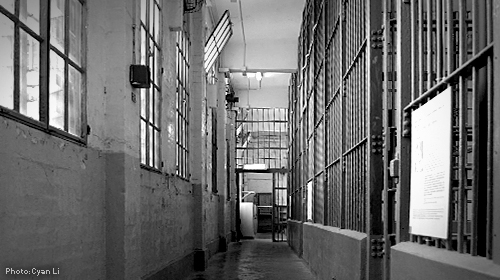
Days into the at the Tacoma-based Northwest Detention Center (NWDC), we won a victory for a class of immigrants detained at that facility. On Tuesday, a federal judge in Seattle ruled that the government must provide the basic due process of a bond hearing to many immigrants at NWDC. The judge held that ICE’s practice of picking up people in the community and denying them a bond hearing is unlawful.
The ruling coincided with the fifth day of the hunger strike of hundreds of individuals at NWDC. The hunger strikers are protesting deplorable conditions at that jail, as well as the broader injustices of the government’s massive immigration detention and deportation system. The strikers want better food, safer work conditions, more contact with their loved ones. They want the government to stop senselessly separating families by locking up and deporting mothers and fathers, children and siblings, friends and coworkers. In short, they are standing up for dignity, and for change.
As the hunger strikers remind us, immigration detention is a massive, costly, and inhumane waste of resources—and of people’s lives. Each year, our immigration prison system costs U.S. taxpayers and destroys hundreds of thousands of our families.
Fortunately, the courts are recognizing the rights of people swept up by this terrible system. Thanks to Tuesday’s ruling in our class action lawsuit—filed in August by ACLU, the Northwest Immigrant Rights Project and the law firm Gibbs Houston Pauw—ICE will have to change its practices in western Washington.
Under immigration laws, lock-up without a bond hearing applies only to a narrow group of people who are taken in by ICE immediately after serving sentences for certain crimes. ICE, however, unlawfully applies this draconian form of detention to people picked up months or years after they’ve returned to their communities. For example, our lead plaintiff Bassam Yusuf Khoury—a lawful permanent resident since 1976—spent only 30 days in jail for a 2011 drug crime and has had no run-ins with the law ever since. He got a steady job in construction and continued his life with his U.S. citizen child and grandchild. Two years later, in 2013, ICE suddenly showed up at his home and put him in mandatory lock-up. As Judge Richard Jones notes in his strongly-worded decision, people leading lives devoted to their families and careers pose no risk to their communities and no risk of flight. “What the government thinks about a law that locks away peaceable family members without release, the court can only guess.”
It defies reason to subject such people to mandatory, no-bond detention—but until Tuesday’s decision, ICE did just that. Now, many immigrants at the Northwest Detention Center will finally receive a hearing where a judge can decide whether they need to be imprisoned in the first place. This doesn’t give the strikers all the justice they demand and deserve—not by a long shot—but it’s at least a step in the right direction.
Learn more about immigration detention and other civil liberty issues: Sign up for breaking news alerts, , and .

